1.I have java function which encrypt xml file and return encrypted String.
/// Java Class
import java.security.Key;
import javax.crypto.Cipher;
import javax.crypto.spec.SecretKeySpec;
import org.apache.commons.codec.binary.Base64;
public class Crypt {
public static String key = "xxxxxxxxxxxxxxxxxxxxxxxxxxxxxxxxxxxxxxxxxxxx";
public static byte[] key_Array = Base64.decodeBase64(key);
public static String encrypt(String strToEncrypt)
{
try
{
//Cipher _Cipher = Cipher.getInstance("AES");
//Cipher _Cipher = Cipher.getInstance("AES/ECB/PKCS5PADDING");
//Cipher _Cipher = Cipher.getInstance("AES/CBC/PKCS5PADDING");
Key SecretKey = new SecretKeySpec(key_Array, "AES");
Cipher _Cipher = Cipher.getInstance("AES");
_Cipher.init(Cipher.ENCRYPT_MODE, SecretKey);
return Base64.encodeBase64String(_Cipher.doFinal(strToEncrypt.getBytes()));
}
catch (Exception e)
{
System.out.println("[Exception]:"+e.getMessage());
}
return null;
}
public static void main(String[] args) {
StringBuilder sb = new StringBuilder();
sb.append("xml file string ...");
String EncryptedString = encrypt(sb.toString());
System.out.println("[EncryptedString]:"+EncryptedString);
}
}
2.I have c# function which decrypt the message which is encrypted by java function.
/// C# Function
private static string Decrypt(string encryptedText)
{
RijndaelManaged aesEncryption = new RijndaelManaged();
aesEncryption.BlockSize = 256;
//aesEncryption.KeySize = 256;
//aesEncryption.Mode = CipherMode.CBC;
//aesEncryption.Padding = PaddingMode.PKCS7;
string keyStr = "xxxxxxxxxxxxxxxxxxxxxxxxxxxxxxxxxxxxxxxxxxxx";
//string ivStr = "xxxxxxxxxxxxxxxxxxxxxxxxxxxxxxxxxxxxxxxxxxxx";
byte[] keyArr = Convert.FromBase64String(keyStr);
//byte[] ivArr = Convert.FromBase64String(ivStr);
aesEncryption.Key = keyArr;
//aesEncryption.IV = ivArr;
ICryptoTransform decrypto = aesEncryption.CreateDecryptor();
byte[] encryptedBytes = Convert.FromBase64CharArray(encryptedText.ToCharArray(), 0, encryptedText.Length);
byte[] decryptedData = decrypto.TransformFinalBlock(encryptedBytes, 0, encryptedBytes.Length); /// CryptographicException: Length of the data to decrypt is invalid.
return ASCIIEncoding.UTF8.GetString(decryptedData);
}
Java encrypt function is work well. But the problem is C# function,
when I decrypt I get below error message
CryptographicException: Length of the data to decrypt is invalid.
I searched solutions by using below ref
- AES Encryption in Java and Decryption in C#
- C# / Java | AES256 encrypt/decrypt
- Encyption/Decryption in C# and Java
but I still face the same error.Could anyone give me suggestion please.
Updated
I Just change my C# crypto function. Below is my change lists
- Block Size to 128
- Key Size to 256
- IV Size to 16
- Key Size to 32
/// Updated decrypt function
private static string Decrypt(string encryptedText)
{
RijndaelManaged aesEncryption = new RijndaelManaged();
aesEncryption.BlockSize = 128;
aesEncryption.KeySize = 256;
//aesEncryption.Mode = CipherMode.CBC;
aesEncryption.Padding = PaddingMode.None;
string keyStr = "xxxxxxxxxxxxxxxxxxxxxxxxxxxxxxxxxxxxxxxxxxxx";
string ivStr = "xxxxxxxxxxxxxxxxxxxxxxxxxxxxxxxxxxxxxxxxxxxx";
byte[] ivArr = Convert.FromBase64String(ivStr);
byte[] IVkey16BytesValue = new byte[16];
Array.Copy(ivArr, IVkey16BytesValue, 16);
byte[] keyArr = Convert.FromBase64String(keyStr);
byte[] KeyArr32BytesValue = new byte[32];
Array.Copy(keyArr, KeyArr32BytesValue, 32);
aesEncryption.IV = IVkey16BytesValue;
aesEncryption.Key = KeyArr32BytesValue;
ICryptoTransform decrypto = aesEncryption.CreateDecryptor();
byte[] encryptedBytes = Convert.FromBase64CharArray(encryptedText.ToCharArray(), 0, encryptedText.Length);
byte[] decryptedData = decrypto.TransformFinalBlock(encryptedBytes, 0, encryptedBytes.Length);
return ASCIIEncoding.UTF8.GetString(decryptedData);
}
In this time, no error occur. But I get decrypted message which i cannot read.
g:�\0�\td��Y\\符O����\rL��W�wHm�>f�\au����%��0��\ ..........
Please let me get your suggestion again.
